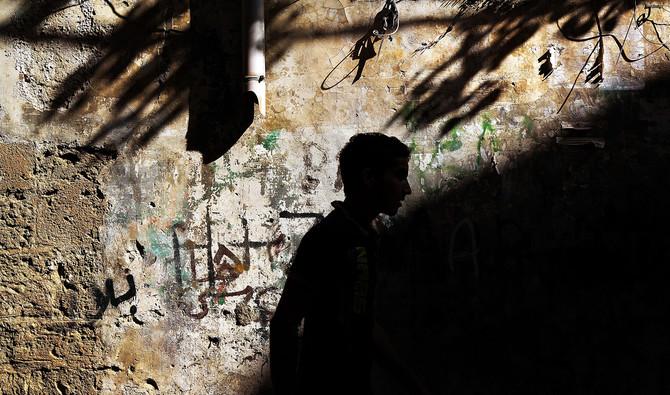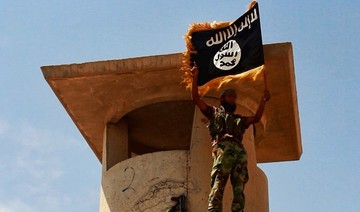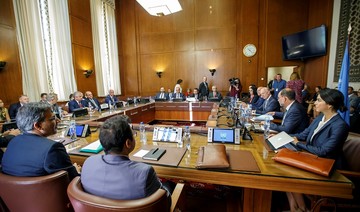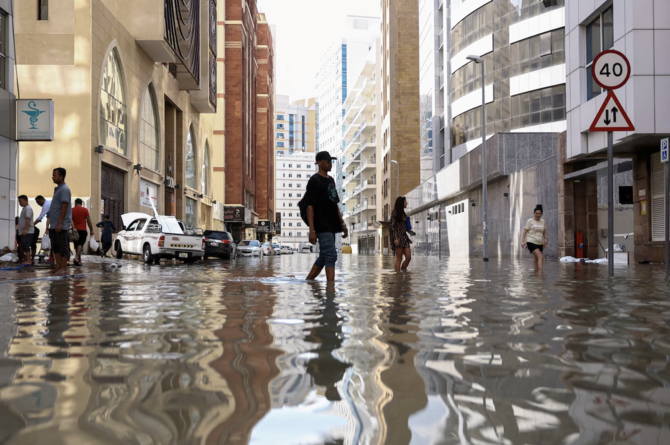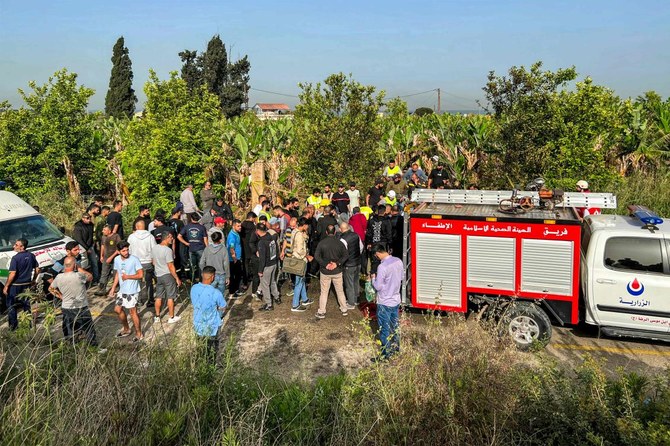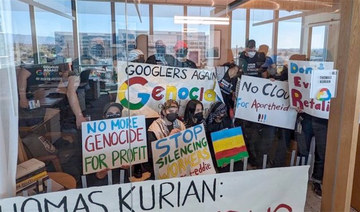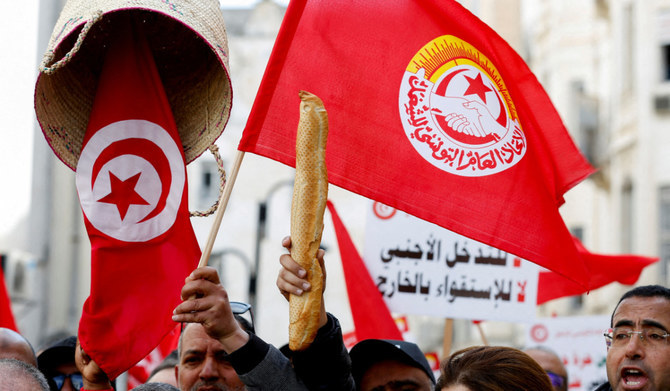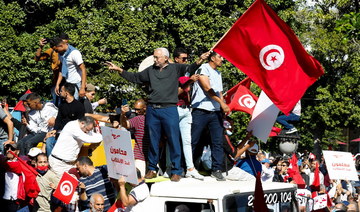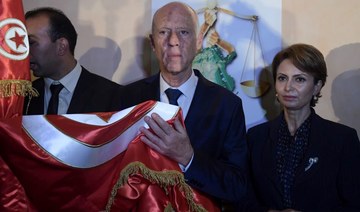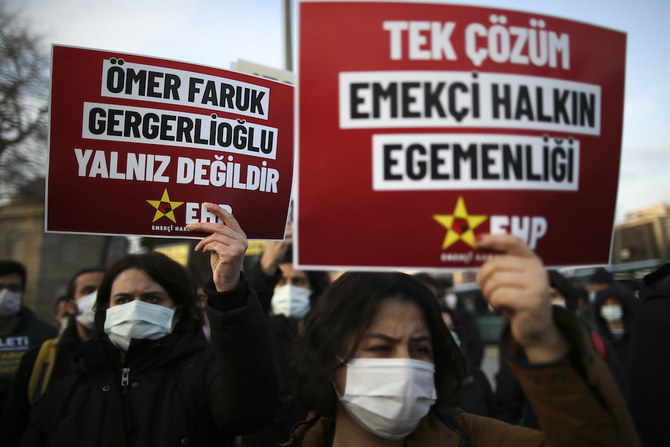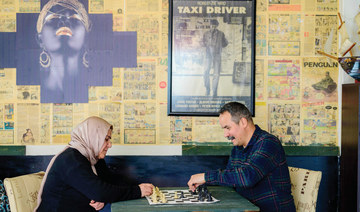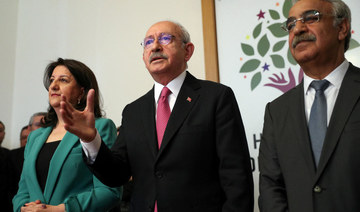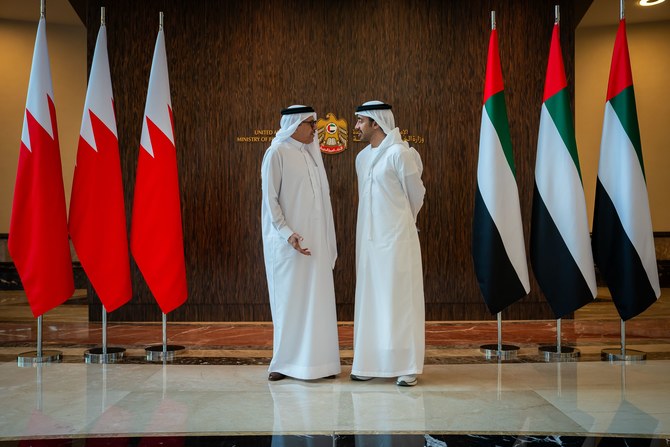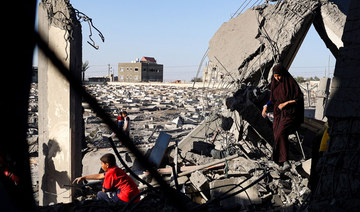LONDON: Of all the many horrors of the war in Syria, it is the one least spoken about, even by its victims. Perhaps especially by its victims.
Sexual violence is not a new phenomenon in war, but it is generally assumed to be directed at women and girls. However, a newly published investigation reveals that in Syria, the victims of torture by rape and sexual assault are just as likely to be men and boys.
Yet such is the stigma and so complex the reasons for that stigma, that their suffering is almost completely unacknowledged, let alone reported.
“There are no organizations that take care of them, and men don’t talk,” said one aid worker.
Instead they suffer in silence, their wounds — both physical and psychological — left untreated.
“It is completely destroying for men,” said another source working with an international NGO. If it becomes known that a man has suffered sexual violence, “it means he has to leave his community (and go) where nobody knows that he has been sexually abused.”
The authors of the report admit that even their research cannot be classed as comprehensive. Between September 2017 and July 2018, field workers from the All Survivors Project (ASP), an international research and advocacy organization, conducted interviews with 66 informants. They included representatives of UN aid agencies, experts in medical care and mental health, NGOs, human rights activist and academics. Two thirds of the interviewees were aware of incidents of sexual violence against men and boys, either through providing medical attention or other humanitarian support or hearing of such cases directly from survivors or from their family, friends or colleagues. Some informants had directly witnessed men and boys being violated.
The resulting report, “Destroyed from within,” is a shocking expose of the sexual torture suffered by men and boys in Syrian prisons, detention centers, at checkpoints and even in refugee centers in neighboring Turkey, supposedly after reaching safety.
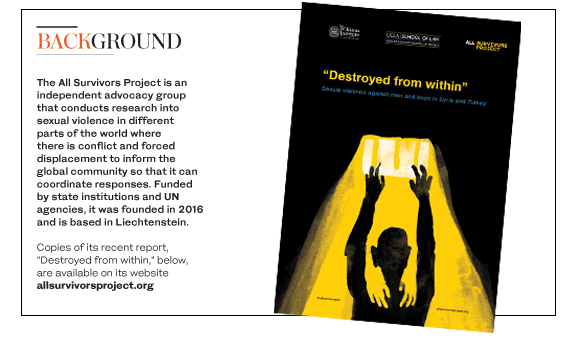 Some of the victims were as young as 11. The perpetrators are identified as members of the Syrian state security forces and in particular their military and air force intelligences branches, associated militias and, to a lesser extent, non-state armed groups.
Some of the victims were as young as 11. The perpetrators are identified as members of the Syrian state security forces and in particular their military and air force intelligences branches, associated militias and, to a lesser extent, non-state armed groups.
“If you talk about sexual violence … there is no one who goes into detention without this happening to him,” a representative of a Syrian human rights NGO related in November 2017. None of those interviewed for the report is named and no specific locations given to protect them and their families from repercussions.
“Age is no barrier: From children to young men are targeted,” said a program manager with a Syrian NGO working in Turkey. “There is a pattern that young men in their late teens or early 20s are specifically targeted, although it can happen to anybody.”
Armed groups not affiliated or opposed to the Syrian state are no less guilty of such atrocities. The International Independent Commission of Inquiry into Syria (COI) has documented cases of males being raped while being
held by the Al-Nusra Front and
tortured by the Syrian Democratic Forces (SDF).
The use of sexual violence taps into a deeply ingrained trait in Syrian society — the cult of masculinity. Already strong, it has been intensified by the Assad regime.
“Syrians have been raised to glorify masculinity and militarism,” said Dr. Rahaf Aldoughli, a lecturer at Lancaster University and at the Middle East Center of the London School of Economics.
“The concept of the fatherland is that it is not for those who live in it but those who defend it. So the ideal citizen is the heroic soldier. Children in primary school are shown how to use a Kalashnikov. They are trained to be aggressive.
“Being masculine means you are a hero, which means you are a true Syrian. Masculinity also means the subjugation of other men. Killing or sexually abusing the ‘other’ becomes a passage to masculinity.”
Daesh uses rape as a recruitment tool. A mental health specialist interviewed for the ASP report speaks of teenage boys who were videoed as they were assaulted. If they refused to join Daesh, the assailants told them the videos would be posted online.
Five of the victims were personally known to him: “They say that the perpetrators wanted to shame them into joining.”
A Syrian psychiatrist told the ASP researchers about men in opposition areas who had come from outside Syria seeking boys to draft into their militias “and
while they are in the militia, they abuse them.”
Children forced into labor by the war are especially vulnerable to being exploited. “In areas under regime control there are Shabiba. These are gangs, they are trading in everything … they run the sex industry, they are like mafia. These people are trying to use the youngsters, males or females, especially those who are very vulnerable, like Iraqi refugees,” said the Syrian psychiatrist.
The dangers do not lessen for those who manage to escape from Syria. Turkey is host to more Syrian refugees than any country in the world, but border controls are now far stricter than they were two years ago, leading refugees to resort to riskier ways of reaching what they believe is a safe place. An international aid worker interviewed by ASP told of helping one man who had been raped by four men involved in people-smuggling.
Another source told of boys, especially those who are unaccompanied, being exploited by smugglers. “This is true especially of those fleeing from Turkey to Greece. This is one way that young minors and unaccompanied minors pay for their journey. They do it out of desperation,” she said.
Even if men are able to overcome the stigma, there is almost nowhere for them to go for help, said Charu Lata Hogg, founder of ASP, who conducted some of the interviews for the report. The law offers no protection as Syria does not acknowledge male rape, she said. Society does not recognize the crime against them and what little support exists for victims of sexual violence is aimed at women and girls.
Some humanitarian workers even bemoan the lack of understanding within their own organizations and the humanitarian community in general.
“Girls and women are considered the primary victims, so in practice services are designed to exclude men and boys,” said Hogg. “We cannot exclude a section of society because we think that they are not suffering enough.”
The legal framework in Turkey does offer protection for men
and boys, but few have any confidence in it.
As ever, the call is for more funding for better medical care and psychological support. But the real remedy lies much deeper and is far more difficult to access.
“We need to reconstruct national identity,” said Dr. Aldoughli. “We need to go beyond idealizing physical power.”


